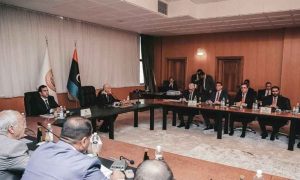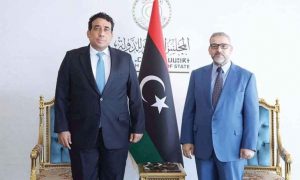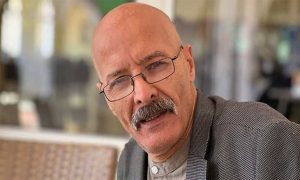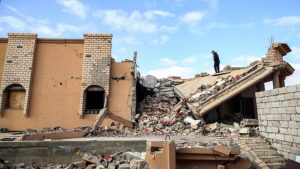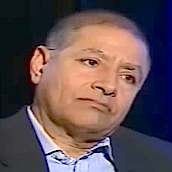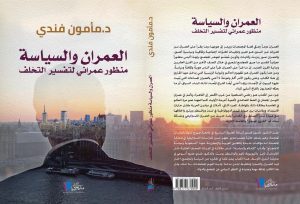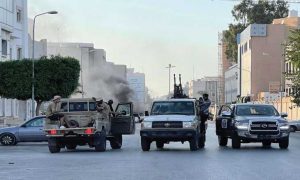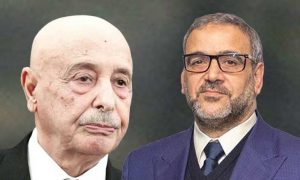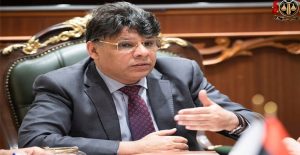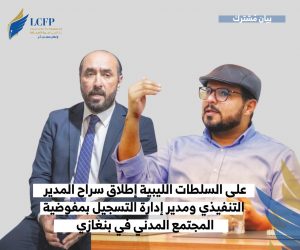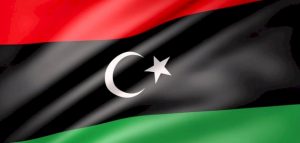رشيد خشــانة – على الرغم من دخان الحرب المُستعرة في أوكرانيا، لم يتراجع تمدُدُ روسيا في جنوب الصحراء، وخاصة في ليبيا والنيجر وجمهورية أفريقيا الوسطى والسودان. وقد يكون هذا التمدُدُ أحد الدوافع الهامة لعودة اللجنة العسكرية المشتركة، المعروفة بـ5+5 إلى الاجتماع أخيرا في مدينة سرت، بعد انقطاع استمر قرابة أربعة أشهر. وأعلن الموفد الأممي إلى ليبيا عبد الله باثيلي، الذي حضر اجتماع سرت، عن انطلاق العمل المشترك بين المراقبين الدوليين والمحليين لمراقبة تنفيذ اتفاق وقف إطلاق النار، الذي يعود إلى 2020. لكن مصير الصراع لن تُقرره اللجنة العسكرية، لأن أعضاءها يأتمرون بأوامر القيادة السياسية التي عينتهم، والقيادة منقسمة على نفسها منذ انتخابات 2014.
استكمال المسار الدستوري
تزامن اجتماع اللجنة العسكرية مع عودة كل من خليفة حفتر ومحمد المنفي وعقيلة صالح إلى الاجتماع في القاهرة، بحضور مصري مباشر. وفي معلومات مصادر عليمة، كان موضوع إجراء الانتخابات النيابية والرئاسية، وخاصة استكمال المسار الدستوري، العالق منذ 2017 المحور الأساسي لاجتماع القاهرة. وبناء على النتائج التي أسفر عنها، سيعرض كل من مجلس النواب والمجلس الأعلى للدولة على أعضائهما نص الوثيقة الدستورية التي اتفق عليها صالح والمشري، والتي تخص شروط إجراء الانتخابات المؤجلة منذ خريف 2021. لكن لا شيء يؤكد أن نقطتي الخلاف بين الجانبين قد حُسمتا قبل إحالة المشروع على المجلسين. ويتعلق الأمر باستبعاد كل من مزدوجي الجنسية والعسكريين من الترشح للانتخابات، وهو البند الذي كان اللواء حفتر مُصرا على إلغائه كي يتسنى له الترشح. وربما كان هذا الإصرار هو الذي دفع المستشارة السابقة للأمين العام للأمم المتحدة ستيفاني وليامز إلى تصنيف حفتر في خانة المعرقلين للحل السياسي.
لكن معلومات جديدة أتت من القاهرة، مفادها أن الاجتماع الذي عُقد في العاصمة المصرية، واستمر خمس ساعات، انتهى إلى ما يُشبه المقايضة، التي «يتنازل» بموجبها الضابط المتقاعد (80 عاما) عن الترشُح للانتخابات الرئاسية، في مقابل ترشًح أحد أولاده، وهو صدام حفتر للرئاسة. وهذا يعني توريث الحكم في المنطقة الشرقية لأحد أبنائه، وتحديدا للمكلف بالعلاقات مع روسيا وإسرائيل والإمارات. ولو ثبت أن حفتر ارتضى فعلا بهذا «التنازل» مثلما أكدت ذلك صحفٌ إسبانية وإيطالية، فإن الأمور لا تتغير كثيرا لأن صدام حفتر يحمل أيضا رتبة عسكرية رفيعة، ما يضعه تحت طائلة البند الذي يحظر على العسكريين الترشح للانتخابات. مع ذلك يبدو أن ما يهمُ خليفة حفتر وعقيلة صالح هو تفادي إجراء استفتاء شعبي قد يُحظر بمقتضاه على العسكريين المباشرين وذوي الجنسية المزدوجة، الترشُح للانتخابات.
دعم مصري سعودي
والأرجح أن الحضور المصري لاجتماعات القادة الليبيين الأخيرة في القاهرة غيرُ بعيد عن هذه المقايضة، التي تُقدمُ على أنها حلٌ لعقدة الوثيقة الدستورية. وفي الأصل يُعتبر الحضور المصري مُستغربا، لأن التقاليد في مثل هذه الحالات، لا تقتضي بالضرورة حضور الطرف الثالث الاجتماعات الليبية الليبية، وهو عُرفٌ تقيد به المغاربة والتونسيون والجزائريون، على مدى السنوات الماضية، لدى رعايتهم اجتماعات من هذا النوع. وفي السياق لوحظ أن مصر والسعودية كانتا أول من بارك اتفاق رئيسي مجلس النواب والدولة على اعتماد الصيغة المُعدلة لـ«الوثيقة الدستورية» التي تلتف على إجراء استفتاء شعبي على مشروع الدستور. وهذا ما قاله صالح في مقابلة مع قناة «القاهرة الإخبارية» بثتها مساء الإثنين الماضي، مؤكدا أن أي قانون يصدر عن السلطة التشريعية يتعلق بنظام الحكم، فهو قاعدة دستورية يمكن البناء عليها.
حيلة قانونية تقفز على الاستفتاء
هكذا لجأ صالح وحفتر إلى حيلة قانونية لا تستلزم الاستفتاء على دستور جديد، بل تكتفي بقاعدة دستورية يُعدل مجلس النواب بموجبها الإعلان الدستوري، الذي وضعه المجلس الوطني الانتقالي في 2011. والجدير بالملاحظة أن هذه العملية تمت بعيدا عن الشفافية في غرف مغلقة، من خلال اجتماعات صالح مع المشري ثم مع حفتر، ما أثار انتقادات واحتجاجات من بينها موقف «مجلس الداعمين للانتخابات والمصالحة الوطنية» وهو منظمة أهلية، الذي دعا (أي المجلس) لإخراج الوثيقة الدستورية إلى النور، مُطالبا أعضاء المجلس الرئاسي بالقيام بدورهم والذهاب إلى الانتخابات. ونفذ أعضاء المجلس وقفة أمام مقر المجلس الرئاسي، مُعلنين أنهم قدموا نسخة من الوثيقة الدستورية إلى جهات عديدة، بعدما أخفق مجلسا النواب والدولة منذ أشهر في التعاطي الجدي معها.
أما الموضوع الثاني الذي تمحور حوله اجتماع القاهرة فهو توحيد المؤسسة العسكرية وضرورة إخراج المرتزقة من البلد، لكن الطرفين ظلا يتقاذفان المسؤولية عن استدعاء المقاتلين الأجانب، فاللواء حفتر لجأ إلى مساعدة قوات فاغنر الروسية، بالإضافة لمرتزقة تشاديين وسودانيين، حتى أوشك على الاستيلاء على طرابلس في 2019 فيما استنجدت الحكومة المعترف بها دوليا بالخبراء الأتراك ومعهم المقاتلون السوريون. من هنا فإن توحيد المؤسسة العسكرية، الذي ناقشته مجموعة 5+5 ما زال شعارا جميلا، لكنه غير قابل للتحقيق في الوضع الراهن، لأن كل فريق ما زال مُحتفظا بـ«مرتزقته». من هنا يبدو أن حفتر يقصد بتأكيده على ضمان مصير «الجيش الوطني الليبي» عدم إدماج أعضاء الميليشيات في الجيش النظامي، الذي يقوده أبناؤه، في إعادة لسيناريو معمر القذافي، عندما حل الجيش وحوله إلى كتائب يقودها أبناؤه.
مخاوف أمريكية
وبالرغم من اشتداد سعير الحرب في أوكرانيا، تؤكد مصادر مطلعة أن موسكو ماضية في خططها للتمدد وتوسيع النفوذ في منطقة الساحل والصحراء. ولا تُخفي واشنطن مخاوفها من اتساع رقعة التدخل الروسي هناك، وهو أحد المواضيع المهمة التي قد يكون رئيس جهاز المخابرات المركزية الأمريكية وليم بيرنز ناقشه مع القادة الليبيين، خلال زيارته الأخيرة لطرابلس. والأرجح أن الموضوع الأساسي الذي جاء بيرنز من أجله إلى ليبيا، هو تقديم طلب رسمي لتسليم عبد الله السنوسي رئيس المخابرات الليبية في عهد القذافي، وهو في الوقت نفسه صهره، للاشتباه في ضلوعه في الاعتداء على طائرة «بان أمريكان» التي أسقطت فوق قرية لوكربي البريطانية.
كما لا يُستبعد أن يكون بيرنز تطرق في لقاءاته إلى خطر الجماعات الإرهابية، في أقصى الجنوب الليبي، بعد مرور خمس سنوات على إخراج قوات «داعش» من مدينة سرت (شمال وسط) بالقوة. وكانت تلك القوات تُعدُ بالآلاف، لكنها لا تتجاوز حاليا بضعة مئات، حسب تقديرات الباحث المتخصص في الشأن الليبي جلال حرشاوي. والمُلاحظ أن زيارة بيرنز تزامنت مع زيارة رئيس المخابرات التركية، الذي جاء إلى طرابلس ليتأكد من أن الحديث عن إخراج المرتزقة والقوات الأجنبية من ليبيا، لا يشمل الخبراء والضباط الأتراك، الذين ساعدوا الحكومة الشرعية على صد هجوم قوات حفتر على العاصمة في 2016.
تنسيق جوي؟
ولاحظ مراقبون أن الأمريكيين كثفوا حركتهم باتجاه المسؤولين الليبيين في الأيام الأخيرة، ففي غياب السفير ريتشارد نورلاند، زار القائم بالأعمال الأمريكي ليزلي أوردمان اللواء خليفة حفتر في مقره ببنغازي، وكان الدبلوماسي الأمريكي مرفوقا بنائب قائد القوات الجوية الأمريكية في أفريقيا، الجنرال جون دي لامونتاني، ما يعني أن الاجتماع تطرق لمسائل عسكرية وأمنية، لم يكشف عنها البيان الصادر عن مكتب حفتر. كما اجتمع أوردمان مع رئيس مجلس النواب، ولم يُعرف مضمون الاجتماع، عدا ما أوردته تغريدة للسفارة الأمريكية نشرتها عبر حسابها على»تويتر» أفادت فيها بأن الاجتماع خصص للتباحث حول «التنسيق الجوي بما في ذلك الطيران، وأهمية إعادة توحيد الجيش الليبي تحت قيادة مدنية منتخبة ديمقراطيا».
وفيما لمح المركز الليبي للدراسات ورسم السياسات تغييرا في الموقف الأمريكي من الأزمة الليبية، متوقعا أنها ستستعجل الضغط على الفرقاء الليبيين، كي يتوصلوا في القريب العاجل، إلى اتفاق نهائي، تُقلل جهات أخرى من عمق التغيير في الموقف الأمريكي، بحكم انشغال واشنطن بالحريق الأوكراني. لكنها تعتمد على حلفائها وخاصة إيطاليا، لإعداد خطة تمكن من ضبط حدود ليبيا الجنوبية والقضاء على بؤر الإرهاب هناك. ويندرج هذا الهدف ضمن استراتيجيا أمريكا لمكافحة الإرهاب عبر العالم. ويقول تقرير المركز الليبي إن الدول التي تعاكس هذا الاتجاه ستُجابه الإرادة الأمريكية العليا بشكل صريح، وهو ما يُفسر تراجع اهتمام بعض الدول، مثل الإمارات، بالملف الليبي. أما الدول التي تُعاني من ارتدادات الصراع الليبي وتأثيراته في أمنها القومي، فهي تتابع الأوضاع باهتمام شديد، وتسعى لإيجاد تسوية سياسية للصراع. وفي مقدم تلك الدول إيطاليا التي لا تُخفي انشغالها لوصول 105 آلاف مهاجر غير قانوني عبر البحر في السنة الماضية، أي بزيادة قُدرت بـ56 في المئة قياسا على العام 2021. وغالبية هؤلاء أتوا من بلدان الضفة الجنوبية للمتوسط، ومن بينهم 53 ألفا قدموا من سواحل ليبيا، وقد تمكنت قوات حراسة السواحل وسفن المنظمات غير الحكومية من إنقاذ 11 ألف مهاجر غير قانوني. من هذا المنطلق تحركت الحكومة الإيطالية الجديدة لمحاولة سد بوابة الهجرة غير القانونية، فقد زار وفد حكومي إيطالي بقيادة وزيري الخارجية والداخلية كلا من تونس والجزائر. وكان وزير الخارجية طار إلى تركيا، قبل مجيئه إلى المنطقة، حيث كان الملف الليبي في قلب زياراته إلى تونس وليبيا وتركيا.
بوابة الهجرة غير القانونية
ولا تُخفي روما سعيها للعب دور ريادي في احتواء ظاهرة الهجرة غير القانونية العابرة للمتوسط. وأفاد وزير الخارجية الإيطالي أن هناك خطين للتدفقات البشرية انطلاقا من السواحل الليبية، الأول من منطقة طرابلس والثاني من منطقة برقة (شرق). ويُعزى الاقبال المتزايد على الهجرة إلى صعوبة الأوضاع الاجتماعية في بلدان المنشإ وسعي المهاجرين إلى تحسين أحوال أسرهم.
وفي الحالة الليبية تبدو الأوضاع الاجتماعية سائرة نحو قدر من التحسن، بفضل ارتفاع الإنتاج من النفط والغاز، وهو ما أتاح اتخاذ إجراءات اجتماعية لفائدة الفئات الشبابية، سواء لتيسير الحصول على مسكن أو للزواج. وتُساعد على انتهاج هذه السياسة الزيادة المتوقعة في إنتاج النفط من 1 مليون برميل يوميا إلى 2 مليوني برميل في غضون ثلاث سنوات، حسب تقديرات وزير النفط والغاز محمد عون. وتُعتبر هذه السياسة، التي لجأت إليها أيضا الحكومة الجزائرية، ضمن خطتها لاحتواء الحراك الاجتماعي والسياسي، ضربا من الرشوة السياسية، لتقسيم الخصوم واستمالة بعضهم إليها. لكن خبراء اقتصاديين يُقللون من فعالية هذه «الرشوة» ويتوقعون أن تتأثر إيرادات الدولة سلبا، جراء ممارسات الفساد والكلفة المرتفعة لمشاريع إعادة الإعمار، فضلا عن تقادم البنية الأساسية لقطاع الطاقة، ولذا سيكون هامش المناورة ضيقا في الأشهر المقبلة، وقد يشهد البلد حراكا اجتماعا، بعد يأس الشارع من إقدام السلطات الانتقالية على اتخاذ قرارات تُنهي المُختنق الحالي.
كأس العالم ليبيا: استعداداتٌ لمؤتمر وطني جامع قد لا يُبصر النور
رشيد خشـــانة – سيبقى مسار الانتخابات عالقا ويُرجح أن رئيسي المجلسين ركزا اجتماعاتهما على مشروع تشكيل حكومة جديدة، يقتصر دورُها على الإعداد للانتخابات.
سواء استمرت الاجتماعات بين رئيسي مجلس النواب عقيلة صالح والمجلس الأعلى للدولة خالد المشري، مستقبلا، أم انقطعت، فإن الأنظار باتت مًوجهة إلى مُخرجات الملتقى التحضيري للمؤتمر الوطني الجامع. فبعد أكثر من عشرة اجتماعات موزعة بين القاهرة والغردقة، بمرافقة مصرية لصيقة، أعلن الرئيسان صالح والمشري عن «التوافق بين المجلسين» في شأن مشروع الوثيقة الدستورية، التي ستستند عليها الانتخابات «عدا بندين أو ثلاثة» حسب المشري. وهذه هي بالتحديد النقطة التي توقفت عندها اللقاءات السابقة، قبل اجتماعات الغردقة والقاهرة. ومحور الخلاف هو مطالبة القائد العسكري للمنطقة الشرقية اللواء المتقاعد خليفة حفتر بحذف شرط التخلي عن الجنسية الثانية (الأمريكية) وكذلك إفساح المجال أمام العسكريين للترشُح للانتخابات الرئاسية بشروط. واستطرادا سيبقى مسار الانتخابات عالقا، مثلما ظل حاله منذ 2017 تاريخ انتهاء اللجنة الدستورية من إعداد مشروع الدستور. بهذا المعنى يُرجح أن رئيسي المجلسين ركزا اجتماعاتهما على مشروع تشكيل حكومة جديدة، يقتصر دورُها نظريا على الإعداد للانتخابات، مع التزام أعضائها بالامتناع عن الترشُح. وبتعبير آخر، فإن جوهر الاجتماعات لم يكن إزالة العقبات من طريق الانتخابات، وإنما تقاسمُ كعكة الحكومة المقبلة.
ويحقُ لليبيين أن يبتسموا حين يُعلن الرئيسان أن المرحلة التي توصلا إليها «متقدمة جدا» وأنهما «أنهيا بها الكثير من الجدل» واستطاعا «وضع العربة على سكة الانتخابات للوصول بأسرع وقت ممكن». الوصول إلى أين؟ قطعا ليس للانتخابات وإنما إلى التوافق على المحاصصة. وحسب المشري اتفق الطرفان على وضع القوانين الانتخابية «بتوافق تام بين المجلسين» وفي حال الاختلاف تُعرض مشاريع القوانين على الاستفتاء «لسماع رأي الشعب مصدر السلطات».
ويُعتبر رئيس حكومة الوحدة عبد الحميد الدبيبة أكبر معارض لمسار التوافق بين المشري وصالح، فقد اتهمهما بعقد صفقات وصفها بـ «المشبوهة» لتقاسم السلطة وتعطيل إجراء الانتخابات. وما يغيظ الدبيبة أن غريميه يتحاوران ويتفقان على الإطاحة بحكومته، بينما يُصرُ هو على عدم تسليم السلطة إلا لحكومة مُنتخبة.
في غضون ذلك تواجه ليبيا مشكلة عويصة تتعلق بإيرادات وإنفاق العام الماضي، اللذين اعتبر خبراءٌ اقتصاديون أنهما تما بناء على «معلومات مالية غير ناضجة» ما يشكل عيبا أساسيا في النظام المالي الليبي. وهذا ما حمل الخبير النفطي محمد أحمد على القول إن إقفال حسابات 2022 تم افتراضيا ومن دون أي توثيق. وعلى هذا الأساس وجه تحذيرا من إقدام المجتمع الدولي على اتخاذ قرارات قاسية، قد تصل إلى تجميد الإيرادات النفطية، في حال تعذُر الوصول إلى حل مُقنع لموازنة العام الجاري. والنتيجة أن جميع الدول، بما فيها الدول النفطية، أقرت موازنات لسنة 2023 وبدأت تطبيقها، بينما تستعد الحكومة الليبية لإقفال دفاترها عن العام المالي المُنقضي.
وأظهرت بيانات مصرف ليبيا المركزي تراجع إيرادات الجمارك ومبيعات السوق المحلية من مشتقات النفط. كما كشفت عن تبذير كبير للمال العام، إذ أن نفقات النواب وصلت إلى 1 مليار دينار (20 مليون دولار) ونفقات المجلس الرئاسي إلى 775 مليون دينار (قرابة 126 مليون دولار) فيما أظهرت بيانات مؤسسة النفط (قطاع عام) أن إجمالي الايرادات في العام الماضي بلغت 130 مليار دينار (25 مليار دولار).
ويتضافر هذا الوضع المالي المتأزم مع تدهور الأحوال الاجتماعية التي تهدد بانفجارات فجائية لا يمكن التكهن بها مسبقا ولا السيطرة عليها، إذ ارتفع عدد الباحثين عن شغل إلى ربع مليون شخص، سجلوا بياناتهم في وزارة العمل والتأهيل. وهذا إخفاق كبير لدولة لديها من الايرادات ما يُمكنها من إطلاق مشاريع ذات تشغيلية عالية. وحسب الناطق باسم وزارة العمل عبد القادر بوشناف، هناك 100 ألف خريج سنويا يغادرون الجامعات بلا آفاق للحصول على فرصة عمل. ولا يستطيع القطاع العام أن يستوعب مزيدا من الموظفين، لأن عدد العاملين في المؤسسات العمومية يتجاوز حاليا مليونين وأربع مئة ألف موظف.
وفي هذا الإطار رصد ديوان المحاسبة، في آخر تقرير سنوي أصدره، ارتفاعا واضحا في باب الرواتب، قياسا على السنوات الماضية. وقُدرت الزيادة بـ5.8 مليار دينار مقارنة بالعام 2020، وبـ8.4 مليار دينار مقارنة بـ2015 الذي بدأ فيه تطبيق الرقم الوطني على الرواتب. أما المعطيات التي بثها صندوق النقد الدولي، فتُشير إلى تضاعف بند الرواتب ليصل إلى 17 في المئة من إجمالي الناتج المحلي الليبي. وأظهرت الإحصاءات أن نسب البطالة تتراوح بين 19 و30 في المئة، وتختلف أنواعها بين من لا يجدون عملا ومن يحصلون على راتب لأنهم مسجلون في وظيفة حكومية، من دون أن يعملوا بصفة فعلية. وحسب الخبير النفطي د. محمد أحمد فإن ما نشره مصرف ليبيا المركزي، في شأن الإيرادات والنفقات الخاصة في السنة المنقضية، يقوم على «معلومات غير ناضجة، ما يشكل عيبا خطرا في النظام المالي». وكشف د. أحمد في مقال على صفحته بموقع «فيسبوك» أن إقفال حسابات 2022 «تم افتراضيا ومن دون أي توثيق» مُحذرا من أن هذه الممارسة تهدد استقرار البلد، وقد تحمل المجتمع الدولي على اتخاذ قرارات ربما تصل إلى تجميد الإيرادات النفطية، إذا ما تعذر الوصول إلى حل لمعضلة موازنة 2023.
مبادرة سياسية؟
المُؤكد أنه لا يوجد حلٌ للأزمات المتراكمة، الاقتصادية منها والمالية والاجتماعية، إلا بمبادرة سياسية. وكان رئيس مجلس النواب ورئيس المجلس الأعلى للدولة اتفقا على أن تُحيل اللجنة المشتركة بين المجلسين، الوثيقة الدستورية إلى المجلسين، كما أسلفنا، بُغية إقرارها، طبقا لنظام كل مجلس، أو عرضها على الاستفتاء الشعبي في صورة رفض أحد المجلسين اعتمادها. وفي الوقت الذي يدور فيه جدل بين الفرقاء الليبيين، في شأن تأمين الشروط القانونية والسياسية لإجراء الانتخابات، ومن ضمنها حلُ الأجسام العسكرية، وضم عناصرها إلى المؤسستين القضائية والأمنية، فاجأ رئيس حكومة الوحدة الدبيبة، الرأي العام الليبي بأداء زيارة إلى بيت آمر ما يسمى بـ«كتيبة 55 مشاة» معمر الضاوي، للاطمئنان على صحته، بعد تعرُضه لاعتداء في تونس.
وكان الدبيبة مرفوقا، في زيارة منزل الضاوي، بعدد من وزراء حكومتهً، ومنح صاحب البيت درع الوفاء، في حضور عدد من أهالي وأعيان ومشايخ ورشفانة. وتُعزى هذه العناية الشخصية إلى دور ميليشيا الضاوي في إخراج أنصار فتحي باشاغا رئيس الحكومة المكلف من مجلس النواب، من طرابلس وإجباره على البقاء في مدينة سرت. وتدل هذه الواقعة على أن بعض الساسة يرعون الأجسام العسكرية الخارجة عن الدولة، ويمولونها ويحمونها، بدل الاستجابة لإرادة الليبيين، الذين طالبوا في جميع المناسبات، بتخليص المدن من الجماعات المسلحة، وكذلك من الأسلحة الثقيلة والمتوسطة.
والأرجح أن هذه المسألة المُلغمة كانت موضوعة على مائدة الملتقى التحضيري لمؤتمر المصالحة الوطنية، الذي ناقش خمس قضايا رئيسة مثلما ذكرنا. وهذه المبادرة هي محاولة لاستئناف الاستعدادات لعقد المؤتمر الوطني الشامل، الذي أبطله هجوم قوات خليفة حفتر على العاصمة طرابلس في نيسان/ابريل 2019. وشاركت في الملتقى التحضيري الأحد الماضي، أكثر من 140 شخصية عامة في اجتماعات أتى المشاركون فيها من غالبية المكونات والأطراف والمناطق الليبية. واعتبر رئيس مفوضية الاتحاد الأفريقي موسى فقي أن الملتقى التحضيري لمؤتمر المصالحة، والذي تم بجهود الاتحاد الأفريقي «خطوة في الاتجاه الصحيح، لإرساء دعائم المصالحة الشاملة». وقاد فقي الوفد الأفريقي إلى الجلسة الافتتاحية للملتقى، الأحد الماضي في طرابلس، إلى جانب رئيس المجلس الرئاسي محمد المنفي. وتندرج مبادرة ملتقى الحوار في إطار السعي لإرساء دعائم المصالحة الشاملة، تمهيدا لإجراء انتخابات حرة وشفافة، بإشراف دولي. ولكن لسائل أن يسأل ما الغاية النهائية من عقد الملتقى التحضيري؟ أوضح رئيس المجلس الرئاسي المنفي في افتتاح الملتقى أن مفتاح الحل في ليبيا «ليس في محاصصة السلطة والنفوذ ولا في تقاسم الموارد والمال، وإنما في استعادة روح الوحدة والأخوة والعيش المشترك». وكشف المنفي أن «الرؤية الاستراتيجية لمشروع المصالحة الوطنية، أعدتها نخبة من الخبراء من الجامعات ومؤسسات الدولة الليبية». من هنا نفهم تصريح عضو المجلس الرئاسي علي اللافي، الذي أفاد في الكلمة التي ألقاها في ختام الاجتماعات، أن هناك وثائق ستصدر عن الملتقى لاحقا، وصفها بأنها «قرارات توافقية تشريعية وتنفيذية تساهم في استقرار ليبيا» مُلمحا إلى أن الملتقى ضم كل الأطراف السياسية «من أجل الوصول إلى المؤتمر الجامع للمصالحة الوطنية».
صفحة جديدة؟
لكن صبر المواطن الليبي نفد من شدة الإحباط وغياب الثقة في المستقبل، خصوصا أن أعمال العنف والاضطرابات الأمنية تُكلف الفرد الواحد قرابة أربعة آلاف دولار سنويا، حسب آخر تقرير لـ«معهد الاقتصاد والسلام الدولي». أما الكلفة الاقتصادية للعنف في ليبيا فقدرها المعهد بـ19 في المئة من الناتج المحلي الإجمالي، أي ما يعادل 1.5 مليار دولار سنويا، وهي كلفة باهظة تُثقل كاهل المواطن. ولا شيء يدل على أن الخلافات بين الفرقاء ستذوب عند الحديث عن مرجعية الانتخابات، بل العكس هو المتوقع. كما أن الخلاف على إدخال تعديلات على القانون الانتخابي سيشكل كابحا من كوابح التوافق المطلوب. أما ملف العدالة الانتقالية فهو أكثر مدعاة للخلاف من الملفات الأخرى، لأنه يتعلق بالاغتيالات والأصناف الأخرى من الانتهاكات، ما يحتاج من الجميع الابتعاد عن ذهنية الانتقام والتشفي، والاستعداد لفتح صفحة جديدة في العلاقة بين الخصوم. وتقتضي الواقعية من المجتمع المدني والمؤسسات الحقوقية والجهات الضاغطة في ليبيا، التوجه بمشروع مفوضية المصالحة الوطنية إلى مجلس النواب والمجلس الأعلى للدولة في آن معا، لأن صدور أي مشروع عن مجلس النواب بمفرده لا جدوى منه في مثل هذه الأمور. فهل هم مستعدون لذلك؟
الإعلامي والسياسي الليبي حسن الأمين: كان الفساد مُقنعا على أيام القذافي وبات اليوم علنيا
رشيد خشـــانة – من السياسة إلى الصحافة، ثم إلى الثقافة، كان حسن الأمين شاهدا على التغييرات التي طرأت على المشهدين السياسي والثقافي الليبيين، أولا بصفته عضوا في”المؤتمر الوطني العام” (هيئة تأسيسية) قبل أن يستقيل منه، ثم بوصفه رئيس تحرير بوابة “السقيفة” الأدبية. وأتاحت الثورة للأمين وآلاف اللاجئين في الخارج العودة إلى ليبيا بعد ثلاثين عاما في المنفى أسس خلالها بوابة “ليبيا المستقبل”. لكنه يُحذر في هذا الحوار من تراجع كبير في مجال الحريات، وإهدار أموال طائلة بسبب الفساد، الذي قال إنه كان مُقنعا على أيام القذافي وبات اليوم علنيا. وبدأ الحوار من هذا السؤال:
■ اليوم وقد مضت أحد عشرة سنة على انتفاضة 17 شباط/فبراير، التي كُنت مشاركا فيها، كيف تصفها: هل حققت أهدافها وإن جزئيا، أم حادت عن المشروع “الثوري” الأول، الذي بشرت به؟
■ كان الهدف الأساسي لانتفاضة 17 فبراير2011 إسقاط نظام جثم على صدور الليبيين، طيلة أربعة عقود. فقد كانت عقودا من السجون والتعذيب والاعدامات، فضلا عن تردي الوضع الاقتصادي والصحي والتعليمي. ولم تُخصص الثروة، في بلد نفطي غني، لبناء ليبيا جديدة، بل كانت تُصرف أموال طائلة على مشاريع لا علاقة لها بليبيا، مثل الجيش الجمهوري الأيرلندي وثورة نيكاراغوا. قامت الثورة إذن لوضع حد لهذه المنظومة، وحققت هذا الهدف. كما نجحت في انتخاب أول برلمان ليبي منتخب، بالرغم من كل ما حصل فيه لاحقا. ولا يمكن أن ننكر أيضا ما حققته الثورة على صعيد حرية التعبير، إذ أصبح الليبيون يتحدثون في الفضائيات وصار الإعلام حُرا بعدما كسر قيوده.
■ لكن حدثت أخطاء كثيرة بعد ذلك، وانحرف القطار عن السكة، فمن يتحمل المسؤولية؟
■ الجميع.. الأحزاب والمجتمع المدني والجماعات المسلحة الخارجة عن الدولة…
■ أنت أيضا أحد المسؤولين بصفتك كنت عضوا في المؤتمر الوطني العام، أليس كذلك؟
■ أولا عندما عدت إلى ليبيا بعدما قضيت سنوات طويلة في المهجر، وهي تجربة استمرت ثلاثين عاما، كان لدي هدف واحد وهو المساهمة في تأسيس إعلام حر ومستقل ومسؤول ومجتمع مدني فاعل ودعم قضايا حقوق الإنسان في ليبيا، والعمل على إيجاد مؤسسات تخدم الحقوق والحريات.
ثانيا لم يكن يدور بخلدي الترشح بل كان أمرا دُفعت إليه دفعا، بعدما أقنعني عدد من الأصدقاء بأن المؤسسة التشريعية التي نحن بصددها هيكلٌ تأسيسيٌ وليست مطية لممارسة السلطة، أي أن الهدف منها هو وضع الأساس لليبيا الجديدة وتحديد قواعد اللعبة، ثم بعد ذلك فليتنافس المتنافسون. لكن للأسف عندما انتُخب أعضاء المؤتمر الوطني العام لم يضعوا في اعتبارهم ما معنى فترة انتقالية، فتجاوزوا المهام التي انتخبوا من أجل النهوض بها، فهناك من تحدث عن مترو أنفاق في طرابلس ومن تحدث عن تحريم الربا وغير ذلك من المواقف التي جعلت المؤتمر يفقد مصداقيته، ولم يعمل بالمقابل على إنهاء وجود الجماعات المسلحة. من هنا بدأت تلك الجماعات تهيمن على القرار السياسي، وشاهدنا ما حصل في قضية العزل السياسي لرجال النظام السابق، بناء على قانون إقصائي. وهكذا وصلتُ إلى قناعة بأني كعضو مستقل مكاني ليس في “المؤتمر الوطني” بحكم تفاقم الاستقطاب السياسي والابتعاد عن مجابهة القضايا الأساسية، فاستقلتُ من المؤتمر لأني أريد أن أتكلم بحرية، من دون أن تفرض علي السلطة ضغوطها، وقررت العودة إلى مجالي أي الحقوق والإعلام، خاصة أن تلك الملفات صارت بحاجة لمن يتكلم عنها بكل صراحة وجرأة.
■ هناك حاليا تقارير تتحدث عن انتهاكات واسعة وتراجع كبير في ملف الحريات…
■ هناك فعلا تراجع كبير في مسائل حقوق الإنسان والاختطاف والقتل خارج القانون والملاحقات الأمنية. هناك أيضا أموال طائلة أهدرت وما زالت تُهدر في ظل الفساد، الذي كان مُقنعا على أيام القذافي وبات اليوم علنيا.
■ لماذ لم تشارك في انتخابات 2014؟
■ كان الوضع مشحونا قبل تلك الانتخابات، وكانت الأوضاع السياسية والأمنية غير مناسبة، وكان هناك مشكل في القانون الانتخابي. وقد قبلنا به في 2012 لكن لا يمكن أن يتكرر ذلك. وأشير هنا إلى أن انتخابات 2014 سبقتها أحداث تُنبئ بمشاكل أخرى قادمة، وكنا نرقب الاشتباكات الأمنية التي حدثت في طرابلس ومدن أخرى، ولذلك تمنينا تأجيل الانتخابات حتى يتم التعامل مع القضايا الساخنة ومنها ترشيد الناخبين وتوعيتهم. لكن للأسف تمت الأمور باستعجال ولذلك لم يكن الاقبال في مستوى 2012. وأعقب ذلك تجاذب حاد بين المؤتمر الوطني الذي كان يُصرُ على أن يتم التسليم والاستلام مع مجلس النواب في طرابلس، ومجلس النواب الجديد الذي كان يرفض أن يستلم في طرابلس. من هنا بدأت الخلافات، وكان من الواضح أن المؤتمر الوطني لم تكن له رغبة حقيقية في تسليم السلطة. وكان البرلمان أيضا مُتعنتا بإصراره على رفض الاستلام في طرابلس. كل هذه المواقف أدت إلى تدهور الوضع العام، وفتح صفحة دامية من الانقسامات السياسية والعسكرية.
■ لماذا لم تقدر الوساطات الليبية والعربية والأجنبية على الحيلولة دون الانزلاق إلى الصراع العسكري؟
■ صحيح، كانت هناك وساطات داخلية عن طريق مجالس الحكماء ورؤساء القبائل لكنها لم تُفلح، لأنها وساطات فاقدة لرؤية حقيقية وواضحة للخروج من الأزمة، وبعضها جاء من أطراف لها أجندتها الخاصة. وما زاد من استفحال الأزمة التدخلُ الدولي والإقليمي (تركيا، مصر…) اللتان جعلتا من ليبيا ساحة لحروب بالوكالة. وبالإضافة إلى ذلك، لا يملك المجتمع الدولي موقفا موحدا تجاه الأزمة الليبية، فالغرب منقسم، وهذا الانقسام صار أوضح عندما اشتد الصراع ودخلنا في حروب جديدة (عملية الكرامة ضد فجر ليبيا 2014) واقتحام طرابلس (2018). وكان التدخل الخارجي جليا، سواء من خلال الدعم السياسي أو العسكري بتوفير السلاح للأطراف المتصارعة (فرنسا، روسيا…) أو بقصف الطائرات المصرية أهدافا في ليبيا.
■ لنعُد إلى مسيرتك الإعلامية في المعارضة، لماذا تم اعتقالك في عهد القذافي؟
■ في الأصل لست إعلاميا ولا صحافيا، فقد غادرت ليبيا في 1983 خلسة، بعدما سُجنت لما كُنتُ أعمل بكلية التربية بجامعة بنغازي فرع البيضاء. واجتاح أعضاء “اللجان الثورية” كليتنا لـ”تطهيرها من الرجعيين وأعداء الثورة” واقتادوني مع رفاقي إلى السجن. لم تطُل فترة الاعتقال، لكنها برهنت لي على أن البلد مُقبل على اضطهاد كبير، فكان خروجي فرصة للمساهمة في تعريف العالم بما يجري في ليبيا، خاصة بعدما تمكنتُ من الاستقرار في لندن.
■ ماذا كانت خطتك؟
■ كان هدفي بالدرجة الأولى مواجهة النظام القمعي بجميع الوسائل المُتاحة، وكشف الانتهاكات الجسيمة لحقوق الإنسان في ليبيا. وانضممتُ إلى أحد فصائل المعارضة الليبية وبعد فترة قصيرة استقلت من العمل التنظيمي، وقررتُ أن أواصل كمناضل مستقل. من هنا جاء الخيار الإعلامي، ففي صراعنا مع النظام لابد لصوتنا أن يصل إلى الليبيين بطريقة أو بأخرى. في هذا السياق أتت صحيفة “ليبيا المستقبل” ولم يكن هدفي الدخول إلى عالم صاحبة الجلالة، بل توثيق انتهاكات النظام لحقوق الإنسان والتعريف بها، وإيصال صوتنا إلى الليبيين في الداخل، فالعمل الإعلامي فرضته علي طبيعة العمل النضالي في ذلك الوقت.
■ متى كان ذلك؟
■ في نهايات 2003 إذ أنشأنا موقعا إلكترونيا مفتوحا لجميع المعارضين والكتاب الليبيين في المهجر، وصار مصدرا إخباريا، إذ كانت تصلنا أخبار من الداخل، وكنا ننشر تقارير دورية عن الوضع في ليبيا ونغطي فعاليات المعارضة الليبية.
■ من كان وراء تحديد وجهة المشروع؟
■ لم يكن للموقع خط سياسي أو أيديولوجي، فأنا غير منتم، والفكرة كانت واضحة، وهي إنهاء الاضطهاد في ليبيا. وفي تعاملنا مع التقارير أو مقالات الرأي، كنا ننشر للجميع. الشيء الوحيد الذي كنا لا نسمح به هو الدفاع عن الدكتاتورية. كان لدينا كتاب يساريون وإسلاميون وليبراليون، ولم نكن نمنع النشر بسبب اتجاه الكاتب.
■ في تلك الفترة من كان صانع القرار في محيط القذافي برأيك: العائلة أم رجال الجهاز؟
■ العلبة هي علبة العقيد أو “القائد” فالنظام كان نظاما فرديا. ربما في السنوات الأخيرة بدأت تخرج بعض القوى إلى الضوء، لكنها لم تكن بعيدة عن القذافي. وهناك قرارات اتُخذت وكانت خاطئة بما في ذلك في اللحظات الأخيرة، لأنه لا يسمع، أو لأن الحاشية لا تقول له الحقيقة. ليبيا حُكمت بقبضة رجل واحد ولا أحد سواه.
■ هل تعتقد أن محاولة الإصلاح التي وعد سيف الاسلام بقيادتها قبل اندلاع الانتفاضة، كانت فعلا ستُرسي دولة القانون؟
■ أذكر أني وصفتُ هذا المشروع في البداية بـ”الأب والابن والروح الشريرة” وقصدتُ بالروح الشريرة اللجان الثورية. كان المشروع في حقيقته مشروع توريث بامتياز، إذ حاول النظام من خلاله امتصاص الغضب، وما أدى إليه من احتقان بدأ يشتدُ. لم يكن مشروعا جادا بل تجسيدا للتحالف بين سيف والإخوان المسلمين، فكل واحد منهما كان يستغل الآخر: من جهة، لدى الإخوان رؤية طويلة المدى للانتشار التنظيمي، فيما كان سيف يستغلهم جسرا لتحقيق مشروعه. لكن لا أحد منهما كان يثق في الآخر، إلى أن بدأ النظام يتداعى فتصدع ذلك الحلف. ولذا كان “الإخوان” في جاهزية كاملة عند اندلاع الانتفاضة في 2011 وتمكنوا من خلال شهر العسل مع سيف، من بعث مؤسسات داخل ليبيا والزيادة من نفوذهم، سواء في الإعلام أم في وضع القانون الانتخابي، أم في مجالات عديدة. مع ذلك كان لمشروع سيف، بالرغم من عدم جديته، دورٌ مهمٌ في إحداث شقوق في جدار النظام. وفي تلك الفترة بدأ الحراك الشعبي، من خلال اعتصام أسر المسجونين أمام السجن كل يوم سبت، فكان بمثابة عود الثقاب الذي فجر، مع تراكمات أخرى، شرارة الانتفاضة. والانتفاضة لا يمكن أن نقيسها بالمسطرة، فهناك تفاعلات عجلت باندلاعها، مع بدء ظهور ثقافة الاحتجاجات في ليبيا، وتأثير الثورة في كل من تونس ومصر، فكان لابد لليبيين من أن يفعلوا شيئا. وأذكر أنني كتبت مقالا في 2007 قلت فيه “هذا الشعب سيفاجئكم”. وفي ردي على شخص زعم أن الانتفاضة من صنع أمريكي، كتبتُ أن المعارضة الليبية “لا تهدف إلا لفضح النظام من أجل الوصول إلى التغيير الحقيقي”.
■ تعاني ليبيا من انقسام يُمزق أوصالها بين شرق وغرب، كيف تقرأ المشهد الراهن؟
■ الواقع الليبي اليوم مأسوي فنحن في دولة فاشلة أو بالأحرى في اللادولة، فهناك حكومتان وبرلمانان، ووصلت الأمور إلى الاقتتال بين رئيسي حكومتين، وسط تفاقم الانتهاكات وصعوبة الأوضاع المعيشية في ظل انقطاع الكهرباء لعدة ساعات، وتدهور حالة المستشفيات وتداعي البنية الأساسية الصحية. لذا لست أرى أن ليبيا ستخرج من هذا المستنقع طالما أن المتصدرين للمشهد هم من استُهلكوا، وهم الذين توجد بينهم أحقاد دفينة.
ليس محور الخلاف كيف نبني اقتصادنا أو علاقاتنا الخارجية، بل حول السلطة أي حول الغنيمة، بينما ليبيا دولة غنية وسكانها قليلو العدد ومتجانسون، والخلاف الحالي ليس بين الليبيين فنحن لسنا في حرب أهلية، إذ هناك مقاتلون من المنطقة الغربية يحاربون مع خليفة حفتر، وآخرون من المنطقة الشرقية يقاتلون في طرابلس. الميليشيات متكونة من مقاتلين من جميع المدن. لم نشهد قتالا بين مدينة وأخرى. لهذا لا أتوقع حلا في ظل وجود هؤلاء، لأنهم ما زالوا يصبون الزيت على النار.
■ كيف سيأتي الحل إذا؟
■ لن تصل ليبيا إلى الاستقرار طالما ظلت هناك مجموعات مسلحة على الأرض تُعيق الحل الذي يُعيد شرعية الدولة. ومن دون حل لمشكل السلاح لا سلام أهليا، فحتى لو توصلوا إلى اتفاق سيأتي هذا أو ذاك شاهرا سلاحه لإبطال ما اتُفق عليه. كنا نقول لابد أولا من نزع سلاح الميليشيات وحلها، والمفروض أن يكون ذلك قد تم قبل اتفاق الصخيرات (2015). لكن بقينا ندخل في اتفاق ونخرج من اتفاق والمشكل قائم. هذا السلاح لا يهدد السلم الاجتماعي والتوافق السياسي وحسب، بل يهدد أيضا معيشة الليبي. لذا أعتقد أنه لابد من تصور واضح مدعوم إقليميا ودوليا لنزع السلاح وحل الميليشيات المارقة عن سلطة الدولة.
■ ما هي مساهمة المجتمع المدني في الدفع نحو هذا الحل السياسي؟
■ أحد الاشكالات التي تواجهها ليبيا اليوم يتمثل بدور الإعلام في تأمين المناخ المناسب للحل. نحن نبحث عن الحرية والانفتاح وصحيح أن الإعلام حرٌ، لكنه ساهم مساهمة سلبية في زيادة الاحتقان ونشر خطاب الكراهية والحث على العنف. لدينا قنوات ووسائل إعلام اصطفت سياسيا، وليس لنا قانون إعلام ولا ميثاق شرف يجتمع حوله الليبيون. وبالتالي صحيح أن الإعلام قدم دعما للثورة، إلا أنه دخل إلى متاهات الصراع السياسي والعنف. ولا ننسى أن ليبيا ليست لها تقاليد ومؤسسات إعلامية، عدا مؤسسة سيف الاسلام، وهي مؤسسة عائلية. وبعد ذلك رأينا زيادة ملحوظة في عدد المؤسسات، لكنها لم تُبن على أساس صحيح، فبعض المؤسسات الناشئة وقعت في شباك الاستقطاب السياسي، ففقدت سلطتها المعنوية.
■ وبماذا تتميز منصتك؟
■ “السقيفة الليبية” منصة ثقافية أدبية على فيسبوك لا تتعاطى السياسة وتحتفي بالإبداع الليبي وهي مفتوحة على الإنتاج الأدبي العربي والعالمي. وهدفنا جمع وتوثيق كل ما يتعلق بالإنتاج الليبي بحيث أنك إذا ما أردت الاطلاع ستجد آخر الأخبار الأدبية ومقالات وتقارير ومتابعات ثقافية… بدأ المشروع بفكرة بسيطة مفادها “لماذا لا أنشئ صفحة لأجعل أصدقائي يشتركون معي في قراءاتي؟ طوال أكثر من عام لم يعرف الزوار من يقف خلف المنصة، وبعد ذلك كبرت “السقيفة” وصار يُرجع إليها ويُنقل عنها. وهي اليوم في عامها الخامس وتدلف إلى السادس. وقد تحصلت على جائزة تقديرية من وزارة الثقافة، ولها متابعون كثرٌ، وهي أول منبر ثقافي ليبي على مواقع التواصل الاجتماعي. هذا النجاح يُرتب علينا مسؤوليات عديدة أولها أن نستمر ونتطور. وقد بدأنا برنامجا لإقامة فعاليات ثقافية حية من ندوات ومحاضرات، وخصصنا الفعالية الأولى للاحتفاء بمؤلفات الأديبة والقاصة عزة كامل المقهور في ندوة بتونس شارك فيها عدة نقاد وكتاب وأدباء.
بعد تراجع البطالة في 2022 .. توقعات بانفراجة في التوظيف و«إعادة الإعمار»
هل تراجع معدّل البطالة في ليبيا خلال 2022، وهل تصدق توقعات البعض بحدوث انفراجة خلال العام 2023 في ملف إعادة الإعمار وبالتالي في قطاع التشغيل؟ ربما. فحسب تصريحات مسؤولين في حكومة الوحدة الوطنية الموقتة انخفض عدد المتعطلين إلى 220 ألفاً من 340 ألفاً في السنوات الماضية، فيما بلغ عدد الباحثين عن العمل ربع مليون شخص سجلوا بياناتهم في وزارة العمل والتأهيل.
وحسب تصريحات الناطق باسم وزارة العمل عبدالقادر أبوشناف إلى قناة «الوسط» (Wtv)، أذيعت عبر برنامج «اقتصاد بلس» فان تلك الإحصاءات تحتاج إلى مراجعة وتدقيق بشكل رسمي، منوهاً بأنه لا توجد نسب دقيقة لمعدلات البطالة في ليبيا.
تقديرات نسب البطالة في ليبيا
ووفق الإحصاءات المتفاوتة تتراوح نسب البطالة بين 19 % و30 %، بينما تختلف أنواع البطالة، بين من لا يجد عملاً على الإطلاق (البطالة الصريحة)، ومن يحصل على راتب ومقيد على وظيفة حكومية دون أن يعمل بشكل فعلي أو منتج (البطالة المقنعة).
أبوشناف أشار إلى أن هناك 100 ألف خريج سنوياً في ليبيا، بينما يبلغ معدل الفقر 42 % وفق بيانات وزارة الشؤون الاجتماعية بحكومة الوحدة الوطنية الموقتة، فيما تسبب الفقر في بحث المواطنين عن عمل إضافي.
وفي 27 يوليو 2022 قال وزير العمل والتأهيل بحكومة الوحدة الوطنية الموقتة علي العابد، إن عدد الباحثين عن العمل المسجلين بالمنظومة تقلص من 340 ألفاً إلى 220 ألف باحث، مشيراً إلى ارتفاع عدد الموظفين في الدولة ليتجاوز مليونين و400 ألف موظف.
لكن متابعين للشأن الليبي يرون عدم حاجة مؤسسات الدولة إلى هذا الكم الهائل من الموظفين الجدد في قطاعاتها الوزارية، ويوضحون أن «هذه الزيادة قد ينجم عنها خروقات في صرف الرواتب وهي مسألة كانت محل مراسلات بين رئيس ديوان المحاسبة خالد شكشك وحكومة عبدالحميد الدبيبة، حيث أرسل شكشك قبل أشهر كتاباً إلى رئيس حكومة الوحدة الوطنية الموقتة بشأن التضخم في الملاكات الوظيفية وأعداد العاملين بالجهاز الإداري للدولة».
المحرومون من رواتبهم
وفي 22 أغسطس الماضي، رد الدبيبة بأن «حكومته لم تقم بالتعاقد أو تعيين أي موظفين جدد، ولكن تعالج رواتب الموظفين الذين يعملون منذ سنوات دون الحصول على حقوقهم».
وفي آخر تقرير سنوي لديوان المحاسبة، جرى رصد ارتفاع ملحوظ في باب الرواتب مقارنة بالأعوام السابقة، حيث بلغت الزيادة عن العام 2020 نحو 5.8 مليار دينار وبنحو 8.4 مليار دينار عن العام 2015، الذي بوشر فيه تطبيق الرقم الوطني على الرواتب.
ورغم احتواء القطاع الحكومي على أعداد كبيرة من الموظفين؛ فإن البطالة متفشية بنسب استقرت عند 19 % على مدى السنوات العشر الماضية، حسب تقديرات مؤسسات مالية دولية. في وقت تضاعف بند الأجور والرواتب العامة ليصل إلى 17 % من إجمالي الناتج المحلي في ليبيا حسب صندوق النقد الدولي.
أغلب الشباب موظفون
العابد وفي لقاء بثته منصة «حكومتنا» على «فيسبوك» أكد عدم وجود رقم دقيق لمعدل البطالة في ليبيا، كما لا توجد بيانات للعاملين بالقطاع الخاص، غير أن «البطالة في ليبيا بطالة مقننة، بحيث لا توجد لدينا بطالة بمسمى البطالة»، لافتاً إلى أن «أغلب الشباب لديهم وظائف سواء في القطاع الخاص أو في الدولة».
وعن برامج تدريب المواطنين مع الشركات الأجنبية وإدماجهم في القطاع الخاص في جميع مناطق ليبيا، لفت وزير العمل والتأهيل إلى وجود خطة لتدريب الباحثين عن العمل في ثلاثة مواقع، الأول مصنع الحديد والصلب بمصراتة، والثاني مركز رفع الكفاءة بالزاوية، والثالث مركز تدريب مشروع النهر الصناعي في بنغازي.
إدماج الشباب في المجموعات المسلحة بسوق العمل
العابد أشار أيضاً إلى برنامج إدماج الشباب المنضمين بالمجموعات المسلحة، باعتباره أحد المشاريع الأساسية لدعم استقرار ليبيا، وهي مبادرة تستهدف تأهيل وإعادة إدماج الشباب المنضوين تحت التشكيلات المسلحة في صفوف العمل، ليس بالضرورة ضمهم لوزارتي الدفاع أو الداخلية، ولكن تدريبهم وضمهم للوظائف المدنية والمهنية. وفي 23 أكتوبر 2021، أطلقت وزارة العمل والتأهيل مبادرة تستهدف تأهيل وإعادة إدماج الشباب المنضوين تحت التشكيلات المسلحة في صفوف العمل، حيث أشارت وقتها إلى «تشكيل لجان فرعية، وعقد اجتماعات بحضور رئاسة الأركان ووزارة الداخلية وأيضا ًالبرنامج الليبي لإعادة التأهيل بشأن وضع الخطط الكفيلة».
الوزير أعاد التذكير بالمبادرة في 27 سبتمبر 2021، حين أعلن إلزام الشركات المشاركة في برنامج إعادة الإعمار بتخصيص 30 % من قوة العمل لديها لليبيين، وفق القوانين والتشريعات المنظمة لسوق العمل في ليبيا، قائلا: «أي شركة تستجلب عمالة تلتزم بتشغيل 30 % من الليبيين الباحثين عن العمل، إضافة إلى 20 % للتدريب».
استراتيجية إدارة القوى العاملة في ليبيا
وفي منتصف ديسمبر الجاري شاركت وزارة العمل والتأهيل مع وزارتي الخارجية والداخلية في ورشة العمل لدراسة جدوى حول إدارة القوى العاملة في ليبيا بدعم من منظمة الهجرة الدولية IOM Libya وبعثة الاتحاد الأوروبي في ليبيا، وجرى عرض تجارب دول إيطاليا وإسبانيا والمغرب في الاستفادة من العمالة الأجنبية غير المنظمة والطرق المثلى في تسوية أوضاعها خصوصاً الفئة التي دخلت بطرق شرعية وعبر المنافد الرسمية.
وزارة العمل عرضت استراتيجيتها حول هذا الملف وما جرى اتخاذه من إجراءات بخصوص العمالة غير المنظمة مثل إطلاق منصة وافد للاستجلاب وتسوية أوضاع العمالة الوافدة بطرق شرعية وفق القوانين والتشريعات النافدة، وكذلك توقيع عدة مذكرات تفاهم لتبادل الأيدي العاملة وفق احتياجات سوق العمل الليبية مع عدة دول منها مصر والنيجر وتونس وكذلك التوجه إلى إبرام مذكرات أخرى مع عدة دول في الفترة القريبة المقبلة للحد من ظاهرة العمالة غير المنظمة.
إعادة الإعمار
وترتبط أرقام التشغيل والبطالة في ليبيا بملف آخر وهو إعادة الإعمار، وتتباين تقديرات تكلفة إعمار ليبيا، فحسب المنتدى الاقتصادي الذي عقد في إيطاليا أغسطس 2021 تطل كلفة مشروعات البنى التحتية والطاقة والمياه والصحة وغيرها إلى نصف تريليون دولار، بينما تتراوح تقديرات محلية بين 100 و200 مليار دولار خلال السنوات العشر المقبلة بواقع 10 مليارات دولار سنويا.
وفي سبتمبر 2022، أعلن وزير الشؤون الاقتصادية بحكومة عبدالحميد الدبيبة سلامة الغويل أن فاتورة إعادة الإعمار تقدر بحولي 111 مليار دولار، وقال خلال زيارته إلى العاصمة المصرية القاهرة، إن الشركات المصرية ستحظى بنصيب الأسد من المشروعات بنسبة 70 في المئة.
وفي ديسمبر 2021 وبعد أيام من إطلاق منظومة الربط الإلكتروني لتنظيم وتسهيل تنقل العمالة بين مصر وليبيا للمشاركة في إعادة الإعمار ومشاريع عودة الحياة إلى طبيعتها، قال وزير العمل والتأهيل علي العابد إن وزارته لديها خطة لاستقدام العمالة المصرية إلى ليبيا، مؤكداً أن «ليبيا تستهدف استقبال حوالي مليوني عامل مصري خلال العامين المقبلين، للمشاركة في إعادة إعمار ليبيا».
وأوضح أن «العمالة المصرية تتوافد على ليبيا، ومن المقرر وفقاً لخطة استقدام العمالة المصرية إلى ليبيا، استهداف حوالي مليوني عامل، سيجري استقدامهم على مرحلتين خلال عامين، بحيث تشمل من 3 إلى 4 دفعات بإجمالي مليون عامل في 2022، ومليون في العام التالي لقطاعات البناء والتشييد وبناء الجسور والطرق والكباري، ومنشآت البنية التحتية».
أشار وزير العمل والتاهيل إلى تخصيص نسبة من العمالة المصرية لقطاعات الأطباء والتمريض والتعليم للاستعانة بها في تشغيل المنشآت الصحية والتعليمية الحيوية.
العمارة والسياسة والتخلف.. رؤية جديدة
العمران والسياسة: منظور عمراني لتفسير التخلف هو كتاب جديد للصديق الدكتور مأمون فندي، أرسله لي من لندن وقرأته في يومين لأنه كتاب غير تقليدي ويطرح أسئلة جديدة في مواضيع قديمة بشكل جديد ولغة سهلة وعميقة عن العمران والسياسة، وأيضا يشارك القاريء بإضاءات عن سيرته العابرة والمركبة بداية من قريته كوم الضبع مركز نقاده من محافظة قتا في الصعيد الجواني، إلى أسيوط والقاهرة ومنها إلى الدراسات العليا في الولايات المتحدة، ونهاية بزيارة أوروبا والعيش والكتابة من لندن؛ حيث يعمل الآن مديرا لبرنامج الشرق الأوسط وأمن الخليج في المعهد الدولي للدراسات الاستراتيجية، ناهيك عن كتابة مقال شهري في صحيفة الشرق الأوسط السعودية ذائعة الانتشار.
يبدأ الكتاب بإهداء لابن أخته أحمد الذي توفي شابا وهو إهداء ليس عابرا لآن المؤلف لم يتخل عن أصوله الصعيدية والأسرية رغم ترحاله وحياته في المهجر بل إنه لايشعر بالرهبة من المركز والمدن الكبيرة، أي أنه لايعاني من عقدة الخواجة مثل العديد من الشباب العربي عندما يسافرون للعواصم والجامعات الغربية وتبهرهم الحداثة الغربية. وهذا واضح في صفحات الكتاب رغم تعدد المواضيع والتطبيقات.
عنوان الكتاب مثير للانتباه: العمارة والسياسة والتخلف.. منظور عمراني لتقسير التخلف. فالعمران ومايطرأ فيه من تغيرات عبر السنين هو تعبير وتجليات لتغيرات اجتماعية وثقافية وسياسية أعمق. والعمران صورة رمزية وكتابات وتأويل مجسم لجوهر المجتمع. لهذا يقول د. فندي: “أتبنى منظورا عمرانيا لتفسير ماجرى للمجتمع المصري في خلال النصف الأخير من القرن العشرين وبداية القرن الجديد” ص 11. بعبارة أخرى يتبنى الكاتب منهجا يكون فيه العمران هو المفهوم الذي يدخل منه القايء إلى كتابه.
ولكن فهم العمران وتخطيط المدن يقرأ من زوايا منهجية متعددة تشمل العمارة والجغرفيا والسياسة والأنثربولوجيا ناهيك عن تداخل الديني والمقدس الرمزي بالسياسي والاجتماعي. ويقول إن فكرة الكتاب جاءت بعد تجربة حياته في الغرب أوروبا وأمريكا على وجه الخصوص، وانطباعاته الشخصية على جوانب مخفية ومظلمة في الحياة المصرية المعاصرة من ريف مصر إلى مدنها. ويقول إن معظم الدراسات عن المجتمع لاتشبه حياته وجيله، ولايمكن فهم تاريخ وثقافة المجتمع وسياسته خارج سياق العمارة وتخطيط المدن وعلاقتها بالإنسانيات والأنثربولوجيا. والتركيز هنا هو على علاقة الإنسان بالشارع والمباني والمدينة وانعكاس ذلك على رؤيته لنفسه والعالم.
هنا نجد نقدا مزدوجا للدراسات التي تركز على القاهرة “مصر” وتهمل الأطراف مثل الصعيد وبالذات الصعيد الجواني ولكن أيضا قصور الدراسات الاجتماعية والسياسية الغربية والعربية الموغلة في التخصص. ناهيك على أهمية التراث الشفاهي والأسطوري الرمزي وتداخل الديني مع السياسي في رموزالعمارة وتخطيط المدن وتفكيك هذه الرموز لفهم معانيها عن الهوية المتعددة والمركبة الآن.
يقول د. فندي إن فكرة العمارة والرموز الأنثربولوجية بدأت في عام 1978عندما بدأ رحلته الأولى من غرب الأقصر وقريته كوم الضبع بالقطار إلى القاهرة. وهذه الرحلة يراها ذات أبعاد رمزية وفلسفية. “لايفوت المرء المسافر بالقطار من الأقصر متجها نحو الشمال ونحو صرة الحكم في القاهرة أن الديني والدنيوي يمثلان خطين متوازيين لايلتقيان إلا عند ملامستهما محيط دائرة المركز في القاهرة” ص41
ويضيف في صفحة 52 ملاحظة ثانية تعبر عن الفكرة والتفسير الأساسي للكتاب “الللافت للنظر حين ركوب القطار من الأقصر في اتجاه القاهرة هو ازدياد أهمية المحافظة كلما اتجهت شمالا. ومع زيادة أهمية المحافظة تزداد أهمية الولي. بمعنى إن الأقصر أصغر من قنا وإن مقام سيدي عبدالرحيمم القناوي في قنا أكثر أهمية من مقام سيدي أبوالحجاج في الأقصر وهكذا حتى تصل القاهرة لضريح سيدنا الحسين”.
د. فندي يقدم هذه الرؤية الجديدة لتداخل العمارة بالأنثربولوجيا والسياسة ويعتمد على أفكار العلامة ابن خلدون والمؤرخ المعماري المصري الراحل حسن فتحي ولكن يضيف تطبيقات جديدة على فهم تركيبة المجتمع وعلاقته بالدولة الحديثة من منظور مقارن وبالذات رؤية الأطراف المهمشة والمنسية للمركز والدولة. ويخلص الكتاب إلى نتائج وتطبيقات جديرة بالاهتمام والتفكير لأنها جديدة وغير معتادة في دراسات مصر المعاصرة سواء باللغة العربية أو في الدراسات الإنجلوأمريكية. مثلا يقول د.فندي بأن هناك تداخل مابين الديني المقدس والسياسي وإن التقويم مثلا ثلاثي فرعوني وهجري وميلادي، وإن اللباس يعكس تعددية الهوية المصرية حيث اللباس الصعيدي الفلاحي الجلباب والعمامة، بجانب الطربوش (العثماني) واللباس الإفرنجي لفئة الأفندية. وكيف أن اللباس الحديث هولباس العمل الرسمي الحكومي أما في البيت فهو اللباس المصري التقليدي. نقرأ في ص 160 “حدود الدولة زمانية، ينتمي الصعيدي للدولة ملبسا لمدة سبع ساعات في اليوم، ومابعدها فهو عالم آخر بدوائر قبلية ومناطقية” وفي إشارة أخرى عن علاقة المصري بالحداثة يقول “السائح يأتي لعالمنا كي يستمتع بالقديم ونذهب لعالمه كي نسنتمتع بالحديث” أي نحن جزء من العالم الآخر والعكس. وهذا ليس صحيحا لفهم ذاتنا وحسب ولكن أيضا فإن الآخر الغربي لايمكن أن يفهم ذاته في عزلة عنا وعن العالم.
ليبيا: الأمل بنهاية الحرب يبتعد
رشيد خشــانة – أنهى الليبيون العام الراحل بمثل ما استقبلوه، أي بأزمة سياسية تزداد تفاقما من سنة إلى أخرى، وبلا أمل في خلاص قريب. وشكل فشل اللقاءات المتكررة (خارج ليبيا) بين رئيس مجلس الدولة خالد المشري ورئيس مجلس النواب عقيلة صالح، صدمة قوية لليبيين ومصدر غضب من عجز النخب عن إنقاذ البلد. وأتى الرد على إخفاق الحوار من الشارع، في سابقة غير مألوفة، إذ انطلق المتظاهرون في طرابلس إلى مقر رئيس الحكومة المؤقتة عبد الحميد الدبيبة، لكن لم تحدث صدامات مع الحراس، على ما يبدو. وانطلقت في الآن نفسه، أي بعد إخفاق محادثات جنيف، مظاهرات أخرى في كل من بنغازي والبيضاء ومصراتة وبعض المدن الأصغر. وما سهل التجاوب مع تلك الشعارات قساوة الأوضاع الاجتماعية، التي بات يعيش فيها الليبيون جراء الانقطاعات الكثيرة للكهرباء، وعلاقة ذلك بفساد الطبقة السياسية برمتها.
عودة الخُضر؟
ويمكن القول إن من يقدر على تعبئة كل هؤلاء المتظاهرين، في وقت واحد وبشعارات موحدة تُدين الحكام السابقين واللاحقين، هم من يُعرفون بـ«الخُضر» وهم أنصار النظام السابق، الذين ما زالت ماكينتهم التعبوية قادرة على العمل، بالرغم من الضربات التي لحقتها. ومن هنا أتت الشعارات، التي عبرت عن رفض جميع من تصدروا المشهد السياسي في السنوات الأخيرة، والتي وصلت إلى حد مهاجمة مقر مجلس النواب في طبرق، وهو ما يؤكد أن خلف المظاهرات قوة سياسية تستثمر الغضب الشعبي لتغليب مشروعها، ورمزه سيف الإسلام القذافي. وكان لافتا أن عدة مدن في المنطقة الشرقية التي يسيطر عليها اللواء المتقاعد خليفة حفتر بقبضة من حديد، أسوة ببنغازي والبيضاء وطبرق وبعض المدن الأصغر، خرجت عن طوعه وشاركت بكثافة في الاحتجاجات.
وقود المظاهرات
وكان الوقود الذي حرك المتظاهرين هو السأم العام من استمرار الصراع على المناصب بين الطامحين إلى السلطة، وسط تدهور غير مسبوق للبنية الأساسية، وفي مقدمها شبكة الكهرباء المهترئة. واتهم المتظاهرون الحكام الحاليين والسابقين بنهب المال العام وتهريب الأموال إلى الخارج. مع ذلك يمكن القول إن جماعة سيف الإسلام تعلموا من التجربة التونسية أن عودة المنظومة السابقة ممكنة، إذا ما بلغ سيل الغضب الزُبى، ولم يوجد بديل سياسي واضح المعالم ومقنع من بين من يُسمون بـ«الفبرايريين» نسبة إلى انتفاضة 17 شباط/فبراير 2011 التي أسقطت منظومة معمر القذافي وأبناءه.
في هذا الإطار يمكن الإشارة إلى تقرير أوروبي اتهم ما وصفه باقدام جهات فاعلة، داخلية وخارجية لم يُسمها، على عرقلة الحل السياسي للأزمة. وشرح التقرير أن العديد من الكيانات في ليبيا مستفيدة من المأزق الحالي ولديها مصلحة ثابتة في الحفاظ على الوضع كما هو، مؤكدا إن بقاء الحال على ما هو عليه أمر غير مقبول بالمرة.
ومن ميزات 2022 في هذا المجال صدور تقارير أماطت اللثام عن مظاهر الفساد المنتشر في المجتمع وأجهزة الدولة على السواء، بما في ذلك رئيس الحكومة الدبيبة والمربع الحاكم معه. وأظهرت دراسة لمعهد الأمم المتحدة الإقليمي لأبحاث الجريمة والعدالة، أن متوسط الخسارة السنوية من التدفقات المالية غير المشروعة في ليبيا يقدر بـ1.2 مليار دولار. وأوضح المركز أن هذه الخسارة تستفيد منها مافيا تهريب المهاجرين، التي تدر سنويا حوالي 236 مليون دولار، بالإضافة إلى حوالي 30 مليون دولار من تهريب الأسلحة الصغيرة والخفيفة، في ظل ضعف السيطرة الفعالة على الأراضي الليبية الشاسعة، وغياب سلطة الدولة من بعض المناطق، وخاصة الجنوب. وفي السياق أكد التقرير أن قيمة تجارة السلاح الليبي، في فترة ما بعد سقوط القذافي، تراوحت بين 15 و30 مليون دولار سنويا، مشيرا إلى أن تهريب النفط يشكل 20 في المئة من دخل الميليشيات.
في هذا الإطار يمكن القول إن سنة 2022 أبصرت صدور تقرير عن ديوان المحاسبة، أحرج حكومة الدبيبة بحجم المخالفات التي سجلها. وأظهر التقرير ارتفاعا ملحوظا في باب الرواتب وانتداب قرابة 270 ألف موظف جديد في 2021. وعلى سبيل المثال ورد في التقرير أن الترفيع من رواتب الدبلوماسيين خلال السنة نفسها كلف الميزانية 544 مليون دولار، بالإضافة لتضخم رواتب الموظفين التابعين لمجلس الوزراء.
ومن المخالفات الأخرى التي رصدها التقرير تضخيم نفقات السفر والمبيت لموظفين تابعين لمجلس الوزراء، والتي بلغت إجمالا أكثر من 4 ملايين دينار. كما لوحظ إيفاد أشخاص لا تربطهم علاقة وظيفية برئاسة مجلس الوزراء، وسداد قيمة حجوزات إقامة بالفنادق، داخل العاصمة طرابلس، لأشخاص من دون توضيح صفاتهم أو تبعيتهم الإدارية لمجلس الوزراء. وأبرز التقرير إجراءات انتداب لموظفين بأضعاف رواتبهم، وتكليف مستشارين لمجلس الوزراء، من دون عقود تُحدد مدة عملهم ومقرات أعمالهم، ومن دون إرفاق مستندات بمؤهلاتهم العلمية وسنوات الخبرة التي تلقوها، إن تلقوا فعلا خبرة.
بعد عشر سنوات
وفي خط مُواز طفا على السطح مجددا ملف الأموال التي هربها الزعيم الراحل معمر القذافي إلى الخارج، والتي ما زالت مُجمدة في مصارف غربية وأفريقية. وفي السياق نفسه، سلطت جريدة «ذا ناشيونال نيوز» البريطانية الضوء على تلك الأموال المنهوبة في الخارج، ووصفت كيف فقد الليبيون الرغبة في استردادها بعد عشر سنوات من قيامهم بالخطوة الأولى لإعادتها إلى الشعب. وأخطر ما كشف عنه تقرير الجريدة البريطانية أن الليبيين لا يمتلكون إلا سجلات قليلة تثبت أين ذهبت أموال القذافي وعائلته بالخارج. وهذا أحد الأسباب التي أدت إلى تعثر مساعي البحث عن الثروة غير المشروعة للنظام الليبي السابق، بالاضافة إلى تعمق الخلافات الداخلية.
ومن ملفات الفساد الكبرى التي لاقت صدى إعلاميا واسعا، قضية تمويل الحملة الانتخابية للرئيس الفرنسي الأسبق نيكولا ساركوزي.
وأكدت محكمة فرنسية في العاصمة باريس، أن وزير الداخلية الفرنسي الأسبق كلود غيان تلقى أموالاً من نظام معمر القذافي عندما كان أميناً عاماً لقصر «الإيليزيه» في عهد ساركوزي وفق ما نشره موقع «ميديا بارت». وحسب منظمة الشفافية الدولية المتخصصة في مجال مكافحة الفساد، نهب مسؤولو النظام الليبي السابق ما بين 60 و120 مليار دولار، لكن 20 مليون دولار فقط من ذلك المبلغ أُعيدت إلى ليبيا، في حين أن نصف ذلك المبلغ هو عقار «وينينغتون كلوز» المملوك للساعدي نجل معمر القذافي. أما الجزء الأكبر من المبلغ فلا يزال مجهول المصير.
لم يختلف الوضع الاجتماعي والصحي في العام المنقضي عن سابقيه، إذ تدهورت الخدمات العامة، ولم يتم إصلاح المنشآت التربوية والصحية والإدارية المتضررة من الحرب الأهلية، إلا جزئيا. وحسب استطلاع دولي يعتمد نحو نصف السكان في ليبيا (45 في المئة) على المياه المعدنية بشكل أساسي، فيما تقتصر نسبة السكان الموصولين بشبكة الأنابيب العامة، التي تديرها الدولة، على ثلث السكان، إذ أن 30 في المئة فقط من السكان موصولون بشبكة المياه.
كما أظهر استطلاع أجرته منظمة «اليونسيف» و«منظمة العمل ضد الجوع» الفرنسية غير الحكومية، أن نصف المدارس في ليبيا لا يوجد فيها ماء، بينما بات الوصول إلى الصرف الصحي في المدارس «أمرًا مقلقًا للغاية». وجاء في الاستطلاع أن قرابة نصف العينة قالوا إنهم ينفقون نحو 69 دينارًا شهريًا على المياه المعبأة للشرب، في حين رأوا أن الشركة العامة للمياه والصرف الصحي مؤسسة «لا يمكن الوثوق بها في إدارة الصعوبات التي تعترض الأسر الليبية». بهذا المعنى يمكن إدراك المخاطر المترتبة على هشاشة أجهزة الدولة وتآكل ثقة الناس في السلطات الحاكمة.
قصارى القول إن عام 2022 كان نسخة من سابقه إن على صعيد تعثر الحلول السياسية، أم على صعيد تدهور الظروف المعيشية، ما دفع بالليبيين إلى تكثيف السفر إلى الخارج. أما الزعماء فضحوا باستقلال القرار الليبي واحتكموا إلى قوى خارجية بغاية واحدة هي تحقيق الغلبة السياسية والامساك بدفة الحكم. لكن الوطن في سبيله إلى الضياع بين أرجل الدول الطامعة بثرواته، خاصة بعدما استغلت تلك القوى وهن الدولة الليبية لتحصيل مكاسب مختلفة تصعب مراجعتها أو تصحيحها.
ليبيا: الرئاسي يؤكد لـ«القدس العربي» دعوته لعقيلة والمشري للاجتماع في 11 يناير ونواب يتوقعون رفض عقيلة
أكد مصدر من المجلس الرئاسي الليبي لـ «القدس العربي» أن المجلس الرئاسي قام بمخاطبة مجلس النواب والمجلس الأعلى للدولة للالتقاء في غدامس في 11 من كانون الثاني / يناير المقبل في إطار مبادرته التي أطلقها لتحريك العملية السياسية وللمضي قدماً في مسار إنجاز القاعدة الدستورية.
وتابع المصدر أن مجلس النواب والمجلس الأعلى للدولة لم يردا حتى الآن على هذه المخاطبة، ويتوقع أن يكون ردهما كتابياً، مضيفاً أن مجلس الدولة أبدى سابقاً موافقته، إلا أن هناك تخوفاً من رفض المجلس الرئاسي المشاركة.
وأضاف المصدر أن رؤية المجلس الرئاسي تنسجم مع رؤية باتيلي بضرورة أن تكون كافة المبادرات في داخل ليبيا وعلى أرض ليبية؛ لضمان عدم تدخل أي طرف أجنبي في طبيعة الحلول والتوافقات.
وفي الثامن من كانون الأول / ديسمبر، أعلن المجلس الرئاسي الليبي عن التقدم بمبادرة لحل الأزمة السياسية في البلاد، تنطلق من لقاء تشاوري طلب الرئاسي إجراءه، على أن يجمع المجالس الثلاثة، مجلس النواب والمجلس الأعلى للدولة والمجلس الرئاسي، بالتنسيق مع المبعوث الخاص للأمين العام للأمم المتحدة.
وأوضح أن هذه المبادرة تهدف إلى «التهيئة لحوار دستوري كأولوية لإنهاء المراحل الانتقالية، تضمن فيه المبادرات والأفكار والرؤى التي طرحتها الأحزاب والقوى الوطنية على المجلس الرئاسي».
وقال المصدر الذي حاورته «القدس العربي» إنه قد تم التنسيق مع بعثة الأمم المتحدة لعقد اللقاء التشاوري في غدامس، مشيراً إلى أن اختيار مدينة غدامس جاء بسبب بعدها عن أطراف الصراع وحياديتها.
وقبل يوم واحد وفي لقاء خاص أجرته «القدس العربي» مع مصدر من المجلس الرئاسي، أوضح تفاصيل مشاورات البعثة مع المجلس، حيث قال إن البعثة طالبت المجلس بأن يكون جزءاً فاعلاً في الحل السياسي الليبي.
وأضاف المصدر أن المجلس الرئاسي بدوره، قدم رؤية متكاملة لحل الأزمة، إلا أنه طرح فكرة تشكيل حكومة جديدة تتصدر المشهد حتى الانتخابات، مشدداً على أن المجلس الرئاسي يرى أنه لا يوجد حل فعال في ظل وجود حكومة الدبيبة.
وتابع أنه وفي الوقت الذي وافق فيه المجلس الأعلى للدولة على فكرة تشكيل حكومة جديدة بمشاركة الرئاسي وإلغاء الحكومتين السابقتين، رفض مجلس النواب مشاركة الرئاسي، متمسكاً بضرورة مغادرة المجلس الرئاسي والدبيبة.
وتعليقاً على الموضوع، قال عضو مجلس النواب عمار الأبلق لـ«القدس العربي» إن أعضاء مجلس النواب أغلبهم ليس لديهم علم باللقاء، لأن الدعوة وجهت فقط لرؤساء المجلسين، ولكن لا نعتقد بأن المجلس الرئاسي من الممكن أن يكون له دور في حل الأزمة أو يكون له دور وسيط.
وتابع أن الأطراف الدولية وحتى البعثة الأممية تحاول إيجاد صيغة للوصول للانتخابات، ولكن المجلس الرئاسي ونتيجة لضعفه وعدم قدرته على إدارة الشأن العام، وتسيير المهام الموكلة له حسب خريطة الطريق، لا نعتقد بأنه سيكون له دور أساسي في الموضوع.
وأضاف الأبلق أن المجلسين، وحسب اتفاق غير معلن بينهما، اتفقا على تغيير السلطة التنفيذية بما فيها المجلس الرئاسي والمناصب السيادية والسير في إطار القاعدة الدستورية، حيث يسعى عقيلة صالح لأن يكون رئيساً للمجلس الرئاسي في الفترة القادمة بعد الاتفاق مع المشري.
وأردف أنه «ورغم لقاء الطرفين أكثر من مرة في جنيف وفي تركيا بشكل غير معلن وفي القاهرة، لم يتمكنا من إيجاد توافق، ولكن أعتقد أن حسم المسألة الدستورية بعيد المنال».
وأضاف الأبلق أن التعديل الدستوري الثاني عشر كان أساساً تعديلاً معيباً، وقد قمنا بالطعن فيه ورفضه، فضلاً عن إصرار رئيس مجلس النواب على مسألة ترشح العسكريين ومزدوجي الجنسية، وهذا كله سيلقي بظلاله على مسألة التوافق بين الطرفين.
وختم قائلاً أن التوافق يحتاج إلى ضغط دولي للوصول إلى انتخابات لا تتعرض إلى طعن، لأنه يمكن الوصول إلى قاعدة دستورية وانتخابات، ولكن من الممكن أن تهدد بالطعن وتفتح الباب لمرحلة جديدة من الصراع.
والأربعاء، نفت بعثة الأمم المتحدة للدعم في ليبيا ما وصفتها بالتقارير الزائفة التي تروج على الإنترنت، وتزعم أن الممثل الخاص للأمين العام عبد الله باتيلي، يخطط للإعلان عن خارطة طريق تتضمن تشكيل حكومة جديدة.
وقالت، في بيان عبر صفحتها على فيسبوك، إن هذا النوع من الأخبار الكاذبة يهدف إلى إرباك العملية السياسية الجارية، وإحداث خلط بشأن دور البعثة الذي لا يتمثل في فرض وصفة للحل، إنما يقضي بتشجيع ودعم حل ليبي-ليبي.
ودعت البعثة جميع الأطراف إلى الامتناع عن أي أعمال قد تهدد الاستقرار الهش في ليبيا، بما في ذلك نشر معلومات مضللة أو مختلقة، لافتة إلى أن أوثق المصادر للوصول إلى معلومات دقيقة وذات مصداقية حول أنشطة الممثل الخاص للأمين العام هو الموقع الرسمي لبعثة الأمم المتحدة للدعم في ليبيا، وحساباتها المعتمدة على وسائل التواصل الاجتماعي.
النائب العام يعلن البدء في العمل بمنظومة التحوّل الرقمي انطلاقا من 2023
أحال مدير مكتب النائب العام، تعميما موجها للمحامين العامين بشأن البدء في انطلاق العمل بمنظومة التحول الرقمي، وذلك انطلاقا من 1 يناير 2023.
وأكد النائب العام بأن الولوج إلى قاعدة البيانات، يجب أن يكون مبنيا على أساس نظامي أو احتياج عملي يهدف إلى تحقيق مصلحة العمل ويبتعد عن أية مخالفة لأصول التحقيق، وأن تكون كلمات المرور إلى قاعدة البيانات سرية ولا يجوز مشاركتها.
وشدد كتاب النائب العام، على ضرورة التقيد بالقواعد القانونية الحاكمة لإجراء الإفصاح عن البيانات الجنائية التي يتم الاطلاع عليها من قبل قادة وأعضاء النيابة العامة، مشيرا إلى أن المنظومة الجديدة تستهدف رقمنة وأرشفة الوثائق القضائية والإدارية الموجودة في محفوظات جميع النيابات، على 3 مراحل تغطي كلها الفترة من 31 ديسمبر 2022 إلى 1 يناير 1990.
وأشار كتاب النائب العام، إلى أن الوثائق المستهدفة بالرقمنة في المرحلة الأولى، هي بيانات ووثائق الواقعات التي مازالت في طور التحقيق الابتدائي، ووثائق الدعاوى المرفوعة إلى القضاء بمختلف درجاته وقضاء القانون، والصادر فيها أحكام قضائية.
وحدد القرار درجة الوصول إلى البيانات، حيث يمنح للنائب العام وحده أو من يفوضه، حق الوصول إلى البيانات القضائية والإدارية المدرجة في المنظومة جميعها، فيما يسمح للمحامي العام ورئيس النيابة ومدير النيابة وعضو النيابة الوصول إلى تلك البيانات بدرجات متفاوتة، كل حسب وظيفته.
بيان صحفي: على السلطات الليبية إطلاق سراح المدير التنفيذي ومدير إدارة التسجيل بمفوضية المجتمع المدني في بنغازي
تعرب المنظمات الحقوقية الليبية الموقعة أدناه عن استنكارها وقلقها الشديدين إزاء قيام جهاز الأمن الداخلي في 18 ديسمبر الجاري باحتجاز المدير التنفيذي لمفوضية المجتمع المدني في بنغازي إبراهيم المقصبي، بالإضافة إلى احتجاز مدير إدارة التسجيل والتوثيق وشؤون الفروع بالمفوضية سالم المعداني في 22 ديسمبر. ويأتي احتجاز المقصبي والمعداني في ظل حملة أمنية متصاعدة في ليبيا منذ نهاية العام الماضي ضد المدافعين عن حقوق الإنسان والمنظمات الحقوقية المستقلة. ومؤخرًا اتسع نطاق الحملة لتطال بعض موظفي المفوضية، وذلك في إطار سعي الأجهزة الأمنية للهيمنة على المجتمع المدني في ليبيا وتأميم نشاطه وإدارة شؤونه عبر موظفين ومسؤولين يخضعون للتعليمات الأمنية
وقد تابعت المنظمات الموقعة النزاع الذي نشب في مفوضية المجتمع المدني في بنغازي خلال الآونة الأخيرة، والذي شهد تقديم مبروكة بالتمر رئيس مجلس مفوضية المجتمع المدني السابقة لبلاغ ضد إبراهيم المقصبي اتهمته فيه باستمراره في عمله بالرغم من إنهائها لندبه. وبالرغم من قيام النيابة العامة في 18 ديسمبر بحفظ التحقيق في الشكوى، إلا أن جهاز الأمن الداخلي قام باحتجاز المقصبي في نفس اليوم. وقد أصدر مجلس إدارة المفوضية بيان استنكر فيه احتجاز المقصبي، على إثر الشكوى المشار إليها أعلاه، والتي قدمتها رئيسة المفوضية السابقة بعدما قام المجلس بسحب ثقته منها. كما ذكر المجلس في بيانه أن جهاز الأمن الداخلي قام أيضًا بمصادرة أجهزة حاسوب من مكاتب الإدارة التنفيذية. وأكد المجلس توقف المفوضية عن العمل لحين إطلاق سراح المقصبي واستعادة الأجهزة المصادرة
الجدير بالذكر أنه خلال الشهر الجاري قامت الرئيسة السابقة للمفوضية بإلغاء قرار صادر عن المفوضية بمنح تراخيص مزاولة العمل لـ 37 منظمة غير حكومية دولية تعمل في ليبيا، وهو ما دفع المدير التنفيذي لإصدار بيان في اليوم التالي يؤكد فيه أن القرار صدر عن السيدة بالتمر بعد سحب الثقة منها وتكليف نائب الرئيس السيد محمود عيسى البرعصي بمهام رئيس المجلس مؤقتًا، وطلب المدير التنفيذي المنظمات الدولية غير الحكومية العاملة في ليبيا بالاستمرار في إجراءات تجديد التراخيص. وهو ما يجعل المنظمات الموقعة تعتقد بأن أسباب احتجاز المقصبي والمعداني تتجاوز ما يثار حول الخلاف الإداري داخل المفوضية، وأنهما ربما يدفعان ثمن سياساتهما الداعمة للمجتمع المدني وعدم انضمامهما للحملة الأمنية القمعية ضد المجتمع المدني. وفي هذا الإطار، تشير المنظمات الموقعة أنها لاحظت خلال العام الماضي لجوء العديد من المنظمات للتسجيل لدى مفوضية المجتمع المدني في بنغازي؛ هربًا من القيود التعسفية التي تفرضها المفوضية في طرابلس على تسجيل الجمعيات
إن المنظمات الحقوقية الليبية الموقعة على البيان تدعو السلطات الليبية إلى :
- ضمان سلامة المدير التنفيذي لمفوضية المجتمع المدني في بنغازي ومدير إدارة التسجيل بالمفوضية وإطلاق سراحهما فورا دون قيد أو شرط
- بذل الجهود اللازمة لإعادة هيكلة مفوضية المجتمع المدني وتوحيدها تحت إدارة واحدة مستقلة، تضم أشخاص أكفاء مشهود لهم بالنزاهة والاستقلال واحترام حقوق الإنسان والحرص على حماية نشاط المجتمع المدني
- وقف تدخل الجهات الأمنية في شؤون مفوضية المجتمع المدني ووقف الحملة الأمنية المتصاعدة ضد المدافعين عن حقوق الإنسان والعاملين بمنظمات المجتمع المدني
- اتخاذ إجراءات فورية تسمح لمجلس النواب بمناقشة مشروع قانون الجمعيات المطروح من المجتمع المدني الليبي منذ أكثر من عام، وبذل الجهود اللازمة لوضع تشريع ينظم عمل المجتمع المدني في ليبيا وفقًا للمعايير الدولية لحرية التنظيم وتكوين الجمعيات
المنظمات الموقعة :
مركز مدافع لحقوق الإنسان
منبر المرأة الليبية من أجل السلام
شبكة أصوات للإعلام
عدالة للجميع
مركز ليبيا المستقبل للإعلام والثقافة
رصد الجرائم في ليبيا
المنظمة الليبية للإعلام المستقل
منظمة الأمان لمناهضة التمييز العنصري
المنظمة العربية الدولية لحقوق المرأة – طرابلس
منظمة 17 فبراير للبيئة وحقوق الإنسان – مصراتة
منظمة شباب من أجل تاورغاء
حقوقيون بلا قيود
منظمة نوازي لدراسات النوع الاجتماعي
منظمة التضامن لمناصرة قضايا المرأة
المركز الليبي لحرية الصحافة
المنظمة المستقلة لحقوق الإنسان
منصة آثر
بعد عامين من كشف تورط الإمارات في تجنيد سودانيين للقتال مع حفتر.. السلطات السودانية تقبض على متهمين في القضية وتلاحق البقية
قالت صحيفة “الحراك السياسي” السودانية، إن الشرطة قبضت على متهمين متورطين في إرسال 276 شابا سودانيا إلى شركة “بلاك شيلد” الإماراتية التي زجت بهم في الحرب في ليبيا للعمل كمرتزقة مع خليفة حفتر.
ونقلت الصحيفة عن مصدر وصفته بالموثوق قوله إن السلطات السودانية قبضت على كل من مالك وكالة “أماندا” للسفر والسياحة، ومالك مكتب “الأميرة للاستخدام الخارجي”، المتهمين في قضية ضحايا شركة بلاك شيلد الإماراتية تحت مادتي القانون الجنائي 7 و8 المتعلقتين بالاتجار بالبشر والمادة 13 المتعلقة بحماية الشاكي.
التحقيق مع المتورطين
وأشارت الصحيفة إلى أن المتهمين أودعا حراسة قسم الاتجار بالبشر بالحاج يوسف، فيما أكد المصدر أنهما لايزالان قيد التحقيق، بينما تواصل السلطات السودانية البحث عن بقية المتهمين الذين قاموا بخداع الشباب بعقود مزيفة للعمل كأفراد أمن للحراسة لشركات الإمارات، إلا أنهم تفاجأوا بنزولهم في ليبيا للعمل كمرتزقة.
يشار إلى أن الشباب رفضوا حينها الانخراط في القال وطالبوا بعودتهم فوراً للسودان، وهو ما تم بعد الضغط المكثف من أسرهم، ووقفات احتجاجية متكررة أمام مجلس الوزراء والسفارة الإماراتية بالخرطوم وقتها، وظل البلاغ مفتوحاً ومتابعاً من قبل موكليهم من المحامين حتى القبض على المتهمينِ الأول والثاني الخميس.
270 سودانيا في رأس لانوف
وكانت منظمة هيومن رايتس ووتش قد أجرت تحقيقا مطولا قبل سنتين عن تجنيد الإمارات لحراس أمن سودانيين وخداعهم للعمل في ليبيا دعما لحفتر، وقالت وقتها إنها أجرت مقابلات مع عدد من السودانيين المغرر بهم من قبل شركة بلاك شيلد للخدمات الأمنية والذين تلقوا تدريبات عسكرية في إحدى المعسكرات بالإمارات قبل أن يتم نقلهم إلى ليبيا وتحديدا إلى رأس لانوف.
وقالت المنظمة إن المهمة التي كانت تخطط لها الإمارات كانت قصيرة وانتهت بسرعة بعد افتضاح أمرهم، مما اضطر بلاك شيلد إلى إعادة السودانيين إلى أبوظبي ومنها إلى الخرطوم وتقديم اعتذار مبهم حسب وصفها، وأوضحت أن بلاك شيلد نقلت أكثر من 270 سودانيا إلى رأس لانوف للقتال مع حفتر بعد إيهامهم بالعمل في إحدى المؤسسات الأمنية داخل الدولة.
أبو ظبي لم تعلق
ولفتت منظمة هيومن رايتس ووتش إلى أن أبوظبي لم تعلق على المسألة، فيما نفت شركة بلاك شيلد خداع العمال فيما يتعلق بطبيعة أو موقع العمل وأكدت أنها لا تشارك في أي خدمات أو أعمال ذات طابع عسكري، في الوقت الذي كشفت فيه الصور ومقاطع الفيديو والتسجيلات الصوتية عكس ذلك.
وأوضح التحقيق أن شركة بلاك شيلد لم تترك أي أثر على شبكة الإنترنت رغم أنها مسجلة لدى دائرة التنمية الاقتصادية بأبوظبي كمؤسسة فردية ذات مسؤولية محدودة ومدرجة على موقع حكومة أبوظبي كشركة خدمات أمنية تأسست في 2019 وهي مملوكة لسيف معوض الكعبي والذي يبدو أنه عقيد في القوات المسلحة، وفق هيومن رايتس ووتش.
الوجهة النهائية ليبيا
وذكرت المنظمة الحقوقية أن العمال السودانيين الذين قابلتهم أكدوا أيضا تورط شخص آخر في القضية، وهو العميد مسعود المزروعي الذي ورد ذكره في الصحف اليمنية بين 2017 و2018 كنائب لقائد القوات الإماراتية وقائد عمليات الحلفاء في عدن، وقد قدم نفسه كنائب مدير في شركة بلاك شيلد التي قامت بتوظيف هؤلاء الشباب.
وجاء في التحقيق أنه بعد أسابيع قليلة من وصول الشباب السودانيين إلى الإمارات، أصدرت بلاك شيلد تصاريح إقامة لهم وجعلتهم يوقعون عقودا تنص صراحة على أنهم سيعملون كحراس أمن في أبوظبي، لكنهم تلقوا تدريبا عسكريا في قاعدة غياثي لمدة 4 أشهر قبل نقلهم إلى ليبيا وعرضوا عليهم مضاعفة أجورهم من 500 إلى ألف دولار شهريا.
المركز المغاربي للأبحاث حول ليبيا
تعريف:
تأسس المركز المغاربي للأبحاث حول ليبيا في جوان - يونيو 2015 في تونس، وهو أول مركز من نوعه يعمل بكل استقلالية من أجل تعميق المعرفة بليبيا في جميع المجالات والقطاعات، ويرفد بالمادة العلمية جهود المجتمع المدني في ليبيا لإقامة الحكم الرشيد، المبني على التعددية والتداول السلمي واحترام حقوق الإنسان . مؤسس المركز: الإعلامي والباحث التونسي رشيد خشانة يقوم المركز بنشر مقالات وأوراق بحثية بالعربية والأنكليزية والفرنسية، ويُقيم مؤتمرات وندوات علمية، وباكورة نشاطاته ندوة حول "إسهام المجتمع المدني في إعادة الاستقرار والانتقال الديمقراطي بليبيا" يومي 5 و6 أكتوبر 2015 بتونس العاصمة.
موقع "ليبيا الجديدة"
موقع إخباري وتحليلي يبث الأخبار السريعة والتقارير السياسية والاقتصادية والثقافية والاجتماعية عن ليبيا، ديدنُه حق المواطن في الإعلام، ورائدُه التحري والدقة، وضالتُه الحقيقة، وأفقهُ المغرب العربي الكبير. يتبنى الموقع أهداف ثورة 17 فبراير ومبادئها السامية ويسعى للمساهمة في بناء ليبيا الجديدة القائمة على الديمقراطية واحترام حقوق الانسان والحكم الرشيد.

